From cocaine and alcohol to photography, poetry, a film award…and now a home
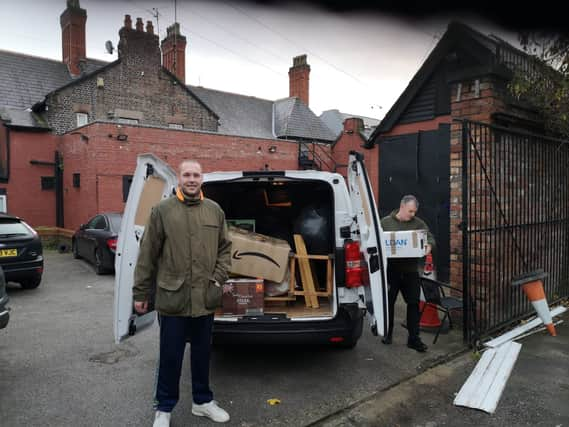

A former drug and alcohol addict who turned his life around to become a photographer, poet and author has just moved into his first home near Liverpool’s Lark Lane.
This month Sam Batley, 30, moved out of Damien John Kelly (DJK) House, an abstinence-based recovery centre in Wavertree for adult men.
Advertisement
Hide AdAdvertisement
Hide AdHe became a resident at the centre in September 2019 after years of ‘sofa surfing’ around his home village of Goldthorpe, South Yorkshire, a former coal mining area in the borough of Barnsley.
“I started drinking when I was about 14,” he told LiverpoolWorld, “then I started taking cocaine.” Habits that would continue for well over another decade.
“I’ve spent a few nights on the streets and was sofa surfing, I never had a real home of my own and always ended up back at my mum’s place. I’d spend periods doing labouring and manual work but was stuck in a cycle.”
A year before moving to Liverpool, Sam started taking photos around his local area: “I found it an interesting place to take pictures, the decay I saw around me was very relevant to my own story and demise.
Advertisement
Hide AdAdvertisement
Hide Ad“There are so many former industrial areas in the North which are the same.”
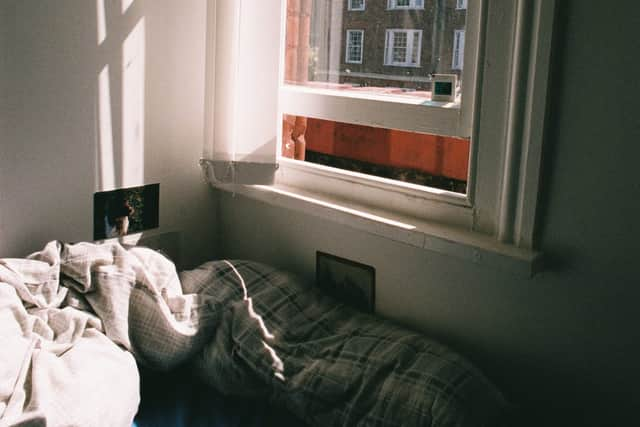

Sam got to a breaking point in 2019 when he was walking in the woods in Yorkshire: “I was at my lowest point ever. I’d had low points before, but I was never willing enough to say I’ve got a problem and admit it - I just thought ‘I can’t carry on’.”
It was at that moment he got a phone call from a friend which changed everything: “He said there was a bed for me at DJK House in Liverpool if I wanted one.
“That’s where my recovery started.”
What does Damien John Kelly House offer?
The Wavertree-based centre is part of Vitality Homes, a Liverpool housing project which helps people with substance misuse problems.
Advertisement
Hide AdAdvertisement
Hide AdThey offer a holistic approach to recovery and look at the various needs of residents from restoring pride in their appearance, including registration with a doctor and dentist, to cookery and meditation classes, gym membership and counselling sessions.
Each resident is allocated a key worker as a direct point of contact and they are introduced to voluntary work and career guidance and advice.
Sam, who had visited Liverpool before and had a feel for the vibrancy of the city, decided to start taking photos again.
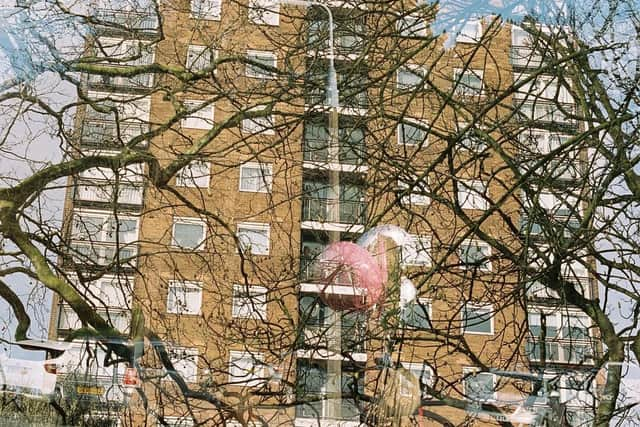

“They were in a documentary style and I was in a new environment, a new city. I felt photography was a good way to explore,” he explained.
Advertisement
Hide AdAdvertisement
Hide AdSam started volunteering at the Open Eye Gallery on Liverpool’s waterfront, which gave him the confidence to recognise himself as an artist.
He said: “I started breaking down misconceptions about myself that I couldn’t be in an art gallery, that it wasn’t for me.”
Spreading creativity among DJK residents
Sam thought of an idea to get everyone in DJK House involved in photography too and got enough cameras from donations and charity shops so everyone who wanted to could have a go.
He said: “There were about 15 guys in the house ranging from their 20s to mid-50s.
Advertisement
Hide AdAdvertisement
Hide Ad“As the group progressed, so did their open-mindedness. With creativity you have to be open-minded and honest.
“From my experience as a child I had fun digging in the dirt, playing. But when I turned about 13 I felt, as a boy, I had to be a certain way, have a certain image and I couldn’t be creative. I needed to be one of the lads. I think a lot of men think that way.
“With this project, there was no judgement involved, the guys could just have a go.”
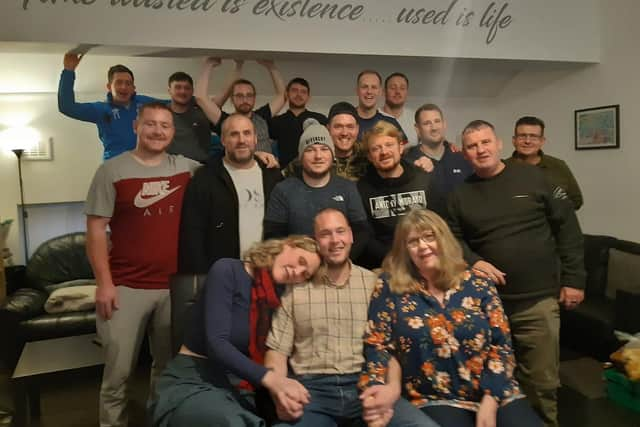

Just before the first lockdown of the pandemic started, Sam managed to get two extra cameras from a charity shop in Wavertree.
Advertisement
Hide AdAdvertisement
Hide Ad“When it looked like lockdown was starting, I nearly went back to Yorkshire,” he recalls.
“But instead of thinking I can’t do this, I decided to flip it all and said to myself, ‘instead of thinking of what you can’t do, come on, what can you give?’. This helped me through lockdown, I did creative writing with the others, took photos.
“It was a positive experience, living as part of a community during lockdown and not feeling on my own.”
Sam first started writing when he was 23, during a difficult period when he was staying at his sister’s house.
Advertisement
Hide AdAdvertisement
Hide Ad“She gave me a notebook and told me to have a go while she was at work,” he said. “I wrote a piece and it was freeing, when she came back, I read it to her and it was emotional.”
His mantra for recovery is taking one day at a time and this became the name of his project during lockdown with the other men in the house.
One Day At A Time Boys used photography, art and creative writing groups which allowed participants to document their different experiences of recovery.
In September this year Sam came full circle and showcased the work of the group on the exterior wall of the Open Eye Gallery.
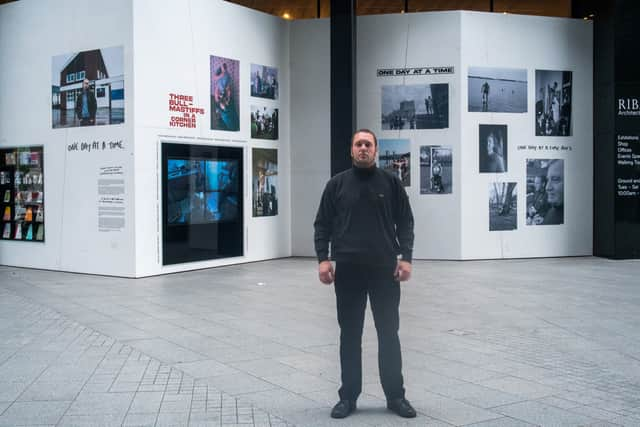

Advertisement
Hide AdAdvertisement
Hide AdThe exhibition also documented the production journey of a film called Three Bull-Mastiffs in a Corner Kitchen which was shot over four days during the pandemic in Manchester starring people in recovery, including Sam.
The film, which was crowdfunded, is based on Sam’s first poem in recovery and the title makes reference to the house of his drug dealer who had three big, frightening dogs used for the blood sport badger- baiting.
Sam and Paul Chambers, the film’s director, developed the poem into a screenplay.
A second film about recovery from addiction called One Day At A Time has also been made.
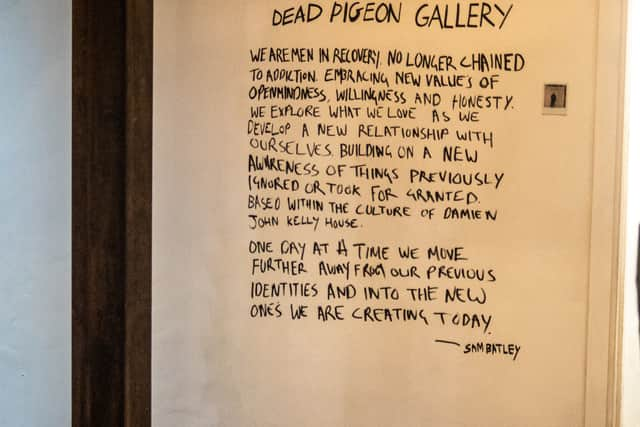

Advertisement
Hide AdAdvertisement
Hide AdDuring 2021,Three Bull-Mastiffs in a Corner Kitchen has been shown at film festivals around the world including Moscow Shorts International Short Film Festival and the Toronto Lift-Off Film Festival.
It won Best Up North Film at the Bolton Film Festival in October which means the film can now enter the BAFTA’s British Short Film Award.
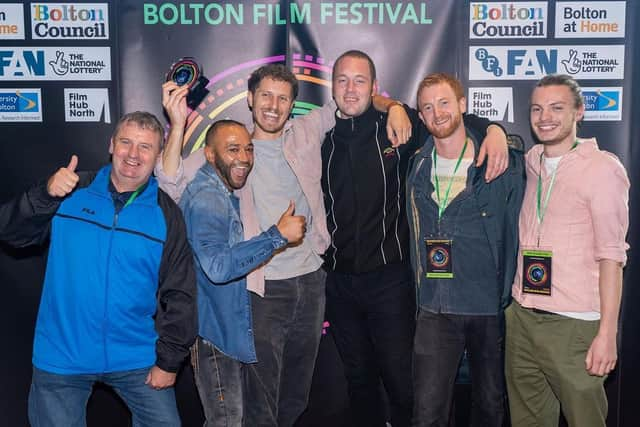

Moving on
The momentum for Sam just keeps going and a book he made last month called Everyday Bastard with photos, writing and notes about his addiction, sold out in two weeks and gave him enough money for a deposit to rent a flat. The book has been so popular he is currently in the process of trying to sort out another print run.
His new abode is a one-bed flat in a Victorian house: “I’m so grateful for what I experienced at DJK House but I thought it was time to be moving out. You have to have faith that when things are meant to happen it will be at the right moment.
Advertisement
Hide AdAdvertisement
Hide Ad“There’s not one bit of me that says this is wrong. It’s the right time.”
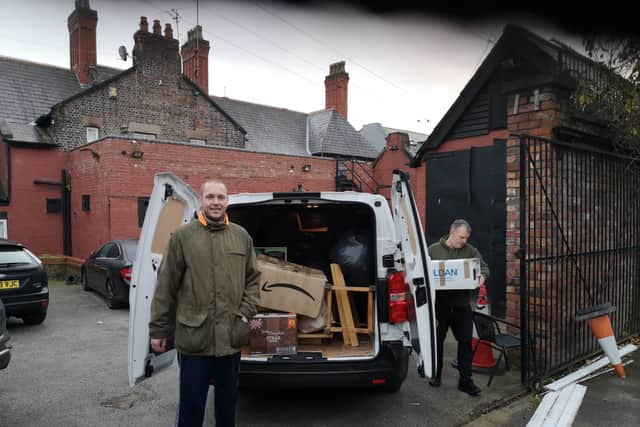

Jacquie Johnston-Lynch, Head of Service at DJK House has nothing but praise for Sam and the journey he has been on: “Sam came here a broken man, two years later he leaves here a miracle, an inspiration, a leader and, most definitely, a recovery carrier.
“He carries his recovery into his new flat, his new neighbourhood and his new community. His humanness touches everyone he meets.”